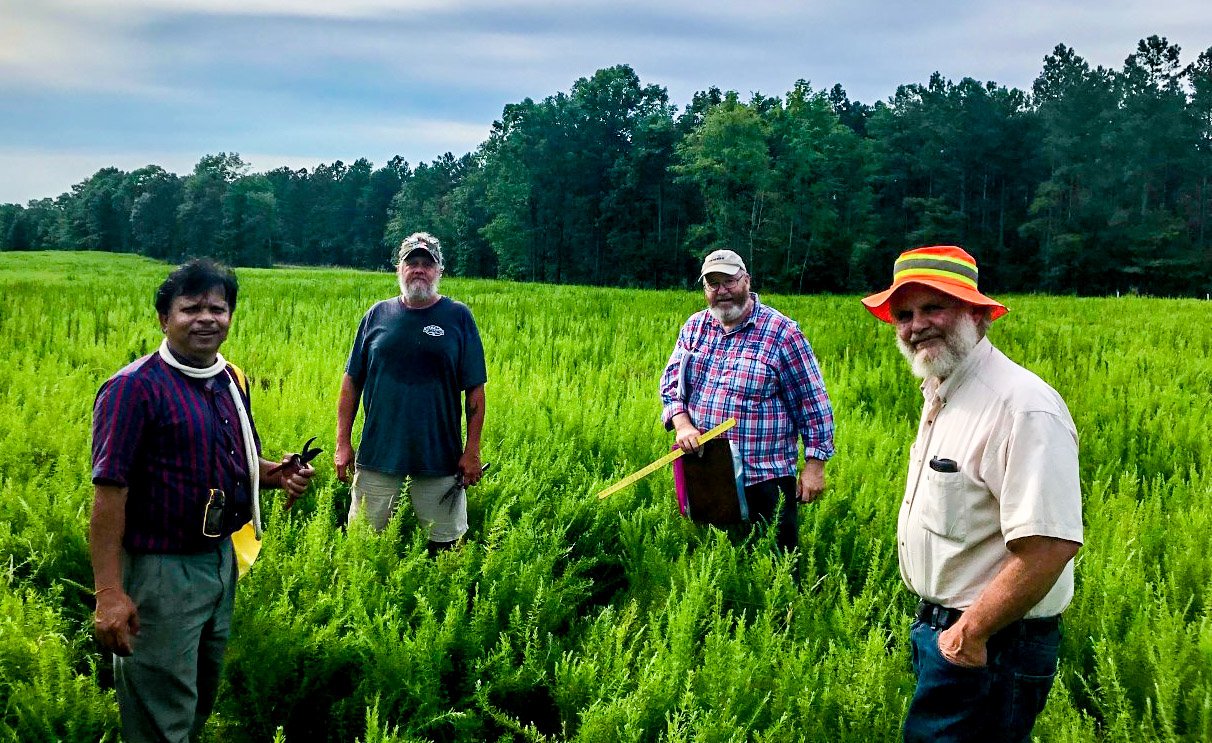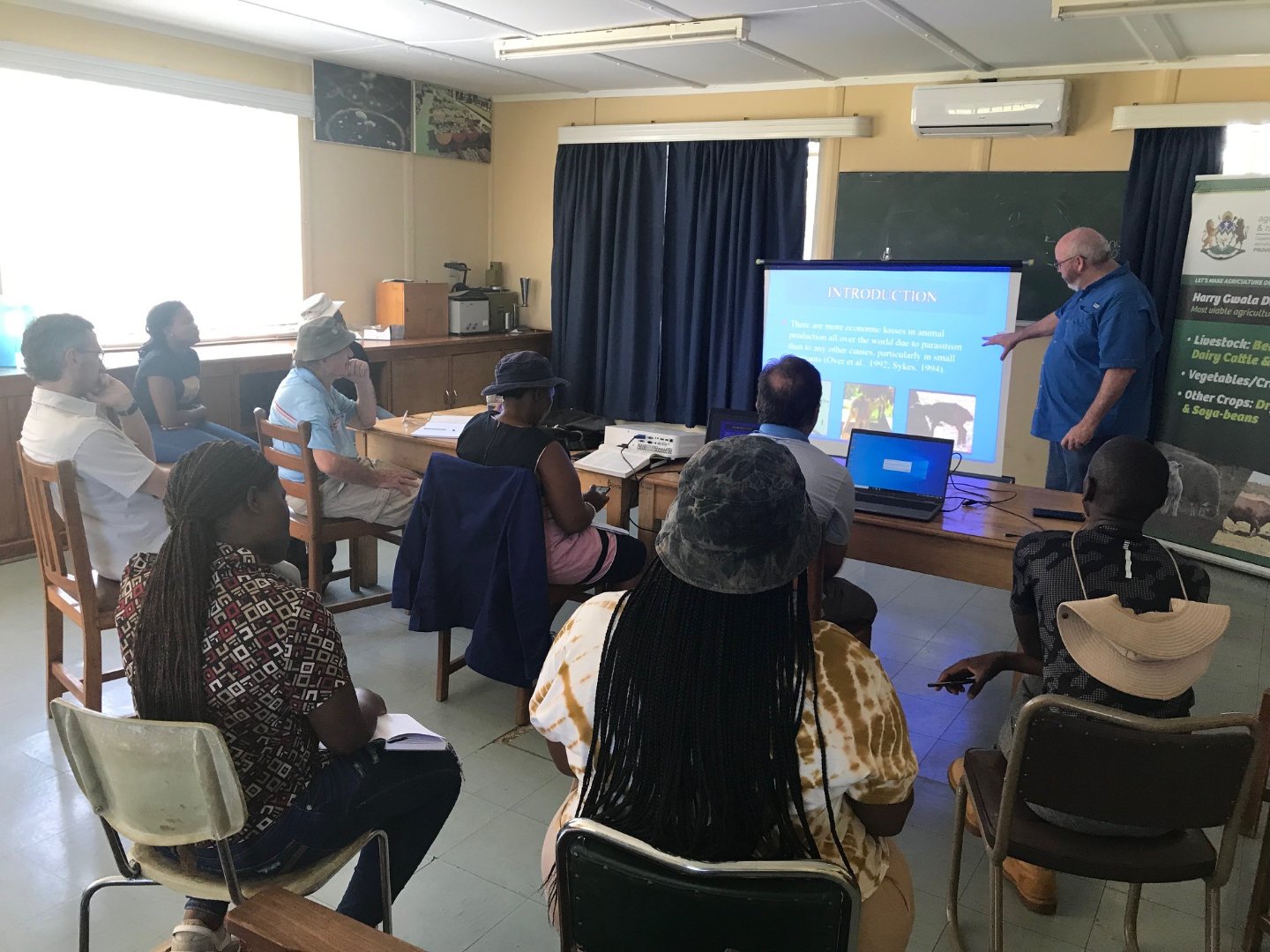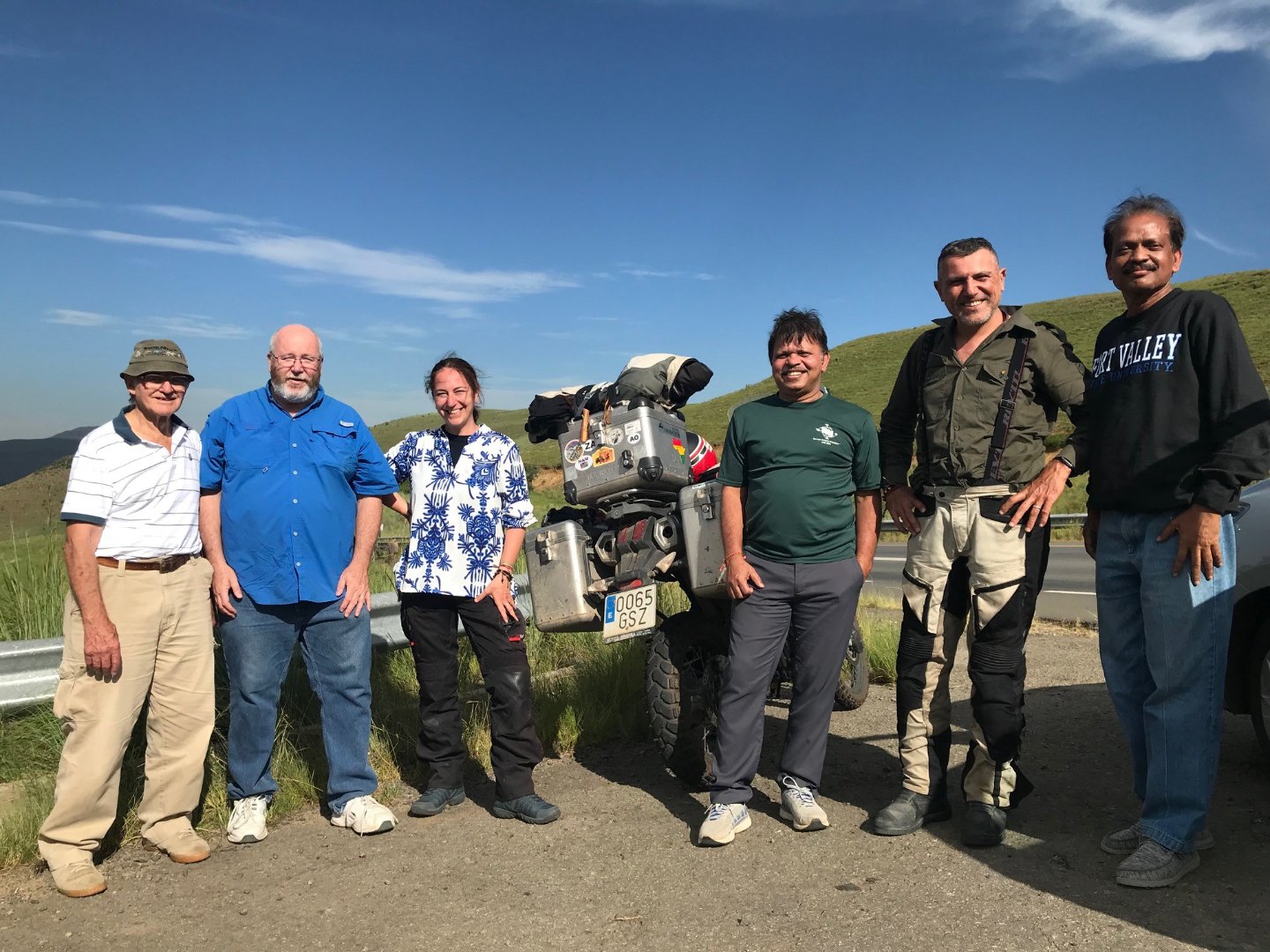Small and limited-resource farmers in the southern U.S. and South Africa will soon have immediate access to their own personal veterinarian and agronomist with just a click of the finger.
Artificial intelligence (AI) and precision agriculture are on the rise as scientists explore emerging technologies for farmers to save money and increase productivity.
For that reason, Fort Valley State University (FVSU) researchers Drs. Thomas Terrill and Ajit Mahapatra are using a $750,000 grant from the U.S. Department of Agriculture’s (USDA) National Institute of Food and Agriculture (NIFA) to develop a precision animal health management app.
“This is an extension of the work we have been doing with the American Consortium for Small Ruminant Parasite Control. We have had a lot of success with the FAMACHA scoring card and medicinal plants,” said Terrill, who is coordinator of the consortium as FVSU is its lead institution.
The animal science professor emphasized the purpose of this innovative project is to use geographic information systems (GIS) technology and AI computer modeling to develop an automated, cell phone-based decision support system for farmers in the U.S. and South Africa to improve animal health in their small ruminants (sheep and goats).
For example, a farmer can take pictures of an ailing goat’s eyes with a cell phone and then send the images through the downloaded free app. In response, the farmer will receive immediate information on how to improve the goat’s health if it needs deworming.
“We found that many limited-resource farmers have access to mobile phones but not the expertise,” Terrill noted. “They may not have the funds or access to a veterinarian who is an expert in caring for small ruminants. Farmers can monitor their animals, and the information through the app will help them save labor and money on medicine, increase productivity and prevent animal deaths.”

Another benefit of using the app is a farmer can predict the best environment to grow medicinal plants such as sericea lespedeza, which is a high-tannin, perennial legume used for forage production.
“We are focusing on low input, simple technologies that are effective for small and limited-resource farmers. Sericea lespedeza (Lespedeza cuneata), an anti-parasitic forage plant, is well adapted to the southern U.S. and South Africa. We have a parallel system, where whatever we are trying out in Africa, we are also doing here,” Terrill said.
The work will be completed in both countries to benefit primarily small and limited-resource livestock producers. Terrill said the modeling will be focused mainly on sustainable management of internal parasites in sheep and goats and will include identification of animals in need of treatment, production of bioactive (anti-parasitic) forages in different geographic regions and climates, and other novel (non-chemical) technologies.

The FVSU forage specialist and Mahapatra, food engineering professor, visited South Africa in January 2023 to kick off their project. On their 10-day trip, they visited several field research sites in various provinces of South Africa to plan their outreach activities. They met with partners Dr. Sudhanshu Panda from the University of North Georgia – Gainesville Campus, Dr. Eric Morgan from Queen’s University Belfast in Northern Ireland and Dr. Jan van Wyk from the University of Pretoria in South Africa. These scientists are experts in GIS technology, climate change and parasitology, respectively. The group also interacted with South African scientists, Extension specialists, farmers and agricultural business owners. Terrill said they received enthusiastic support for their project regarding the potential use of sericea lespedeza.
In addition, a GIS laboratory will be housed on campus to train FVSU students in AI. “We are hoping this will be the start of a new curriculum here at Fort Valley,” Terrill said.
The overseas collaborators plan to visit FVSU for additional research and outreach planning. The team will incorporate drones to capture photos and collect data from transponders placed on individual goats that will give off a radio signal to help monitor their activities. The scientists will examine differences over the seasons.
Once the decision support system app is implemented, farmers can use it anywhere in the world where livestock are raised.
This NIFA-funded project is for three years. The title is “Geo-information Technology and Artificial Intelligence Application Based Animal Health Management Decision Support System Development to Support Small-Holding Farmers.”

